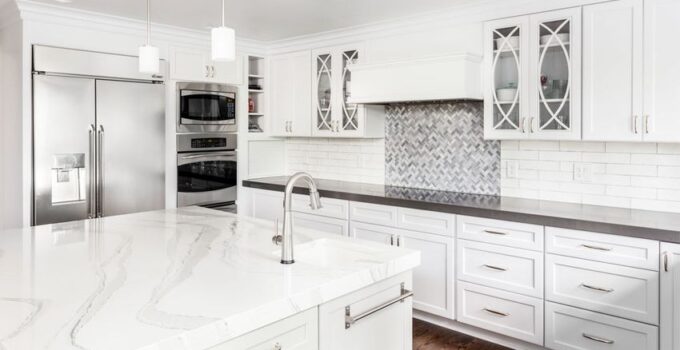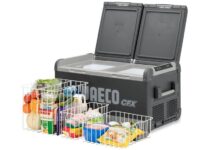There’s more to selecting the right natural stone countertop than the visual impact the surface will give your kitchen, that’s for sure. Durability, maintenance, and cost play a huge part in the pros and cons and decision-making of the matter. The amount of time, money, and effort you put into resealing, or into not resealing, can also help narrow down your options.
Before you get into the nitty-gritty details of the countertops you have to choose from, ask yourself these questions:
– How often will you use your countertop?
– How regularly and how well will you clean your countertop?
– Do you spill liquids, oils, and greases on your countertop (porous factor)?
– Do you use a cutting board (scratching factor)?
Then, match your answers with the best-fitting natural stone option below. Don’t worry, we’ll give you all the information you’ll need to make a sufficient choice. We’ll begin with granite countertops.
Page Contents
Granite
Granite is the most common and widely used natural material countertop found in kitchens. Its sturdy surface makes it durable, stain-resistant, heat-resistant, and scratch-resistant. Fortunately, this countertop comes in a wide range of colors and patterns and is widely available in all areas of the world.
However, there are some downsides to the granite, too. This surface can be extremely porous depending on the brand you select, therefore leading to the unwanted expense of sealing the countertop annually to protect it from stains. Also, dark granites typically show fingerprints and watermarks clearly. Granite tops can be brittle, resulting in periodic chipping or cracking of the surface if struck hard enough.

source:parkworks.org
Before purchasing slabs of granite, make sure the weight of the countertop can be held up by the cabinetry underneath it, too.
Marble
Marble countertops can range in color from solid white to solid black, depending on the manufacturer and slab chosen. The variation that this surface comes with can give your kitchen a unique look to it, especially with the vivid contrasting and veining buried within. These aesthetic appeals cannot be found in other natural stone surfaces.
Marble may be the best option for you if you’re not going to be using your kitchen countertops often. If you are going to be cutting, cooking, and baking on these surfaces, you’ll want to know and understand the cons of marble.
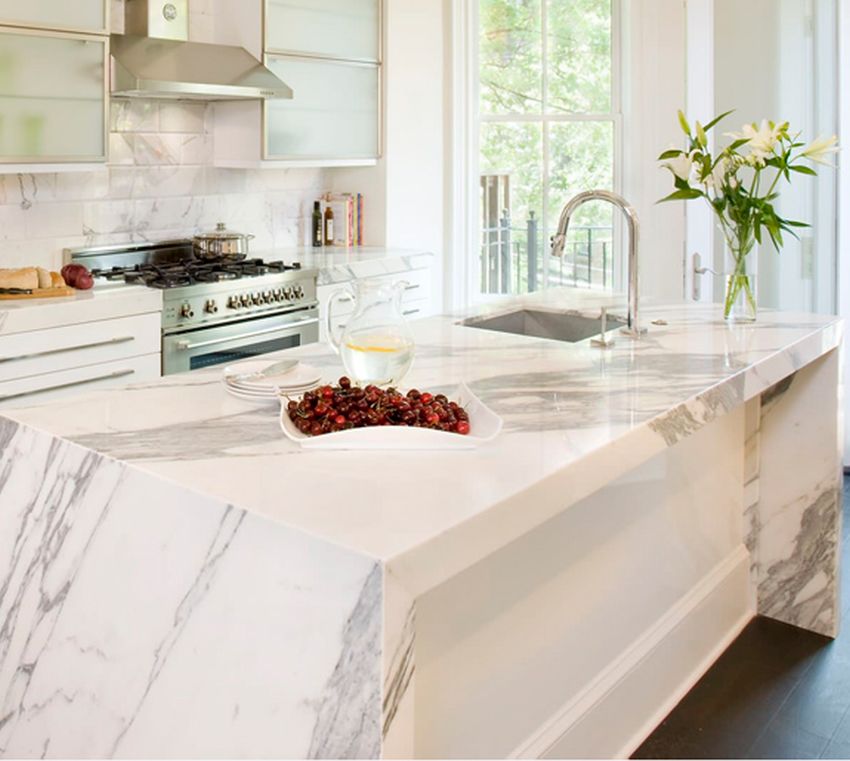
source:consumerreports.org
This surface requires high-maintenance and constant resealing, which can be expensive. Marble is prone to damage from acidic substances, such as vinegar, citric juices and acids, and certain household cleaners. The surface is a lot softer than granite and may scratch easily if a cutting board is not used.
Slate
Slate surfaces make an accessory statement for your kitchen, especially for casual décor styled countertops. The issue with this material, however, is that the material can be on the better end of the spectrum, but it can also be at the bottom of the list for homeowner options. Allow us to explain a little further.
Slate can be dense, but it can also be weak and require constant sealing to protect against stains and scratches; this all depends on the brand and manufacturer you use. The absorption rate can also change depending on the grade of slate you choose.
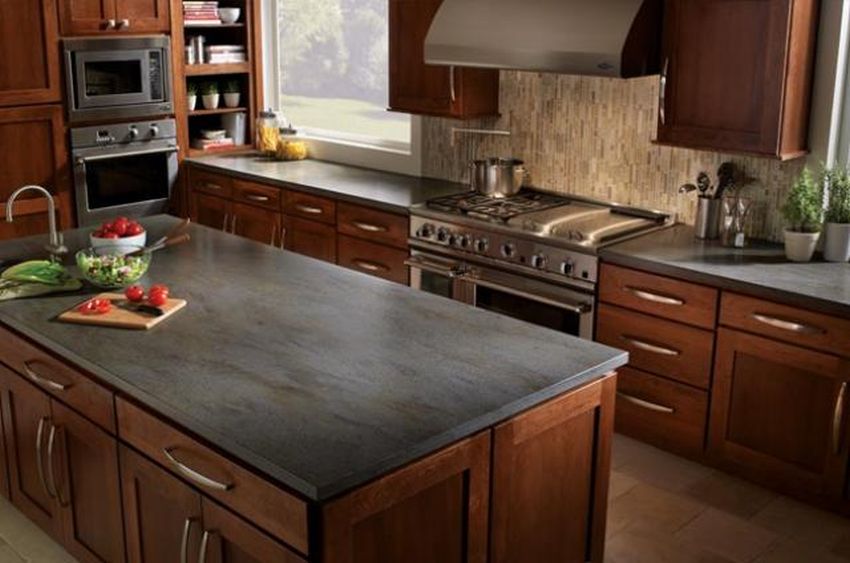
source:sdflooringcenteranddesign.com
If you’re leaning towards installing slate countertops in your kitchen, purchase a few samples and bring them home beforehand. Throw various forms of punishment at the stone slab to get a greater idea of what you’ll expect in your home. For instance, treat the slab like you would your countertop for a week or so and see what fate your installed slabs will face.
Soapstone
Soapstone is an incredibly soft material with a smooth texture. In fact, this material is so soft that the scratches that appear on its surface can be easily sanded out. As for its appearance, soapstone naturally sports a light gray color with some light gray or white veining; the surface may darken over time.
Luckily, the beautifully-occurring stone does not have to be sealed. The denseness that is comprised of soapstone does not grant a way for the ‘sealer’ to enter the stone, so to speak, making its surface unaffected by acids and alkalis.
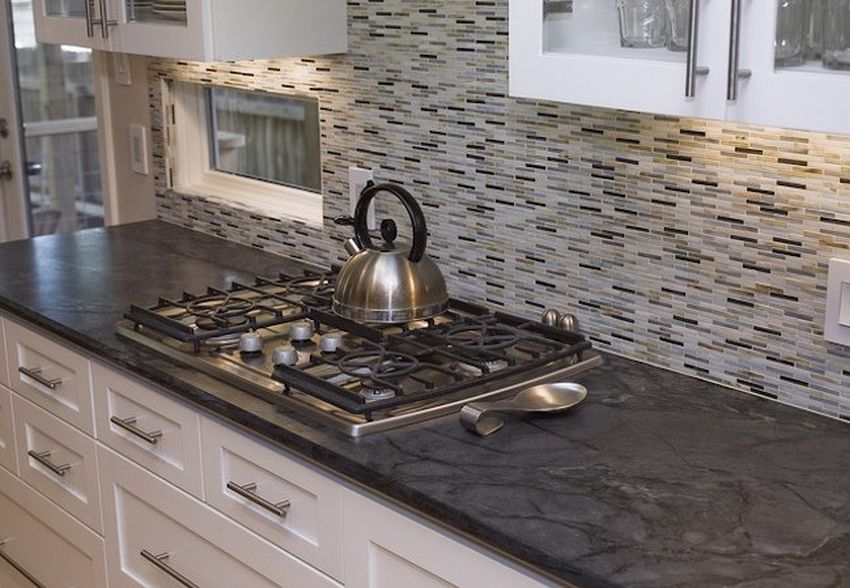
source:bobvila.com
However, you will have to be aware that soapstone can be easily scratched and dented. Yes, it’s true that most scratches can be sanded out, but it may require more time and effort to keep up with the sanding than anything else. Also, the lighter the material chosen, the more oil and watermarks will appear, unless a mineral oil coating is applied regularly.
Limestone
Limestone has an array of lighter colors to offer homeowners, providing you unique options to add to your kitchen.
There are a lot of cons to this naturally-occurring stone, though. Limestone does require annual sealing, but this yearly sealing will not protect the surface from acid etching. These limestone surfaces are also susceptible to scratches and are not as readily available as all other stones.
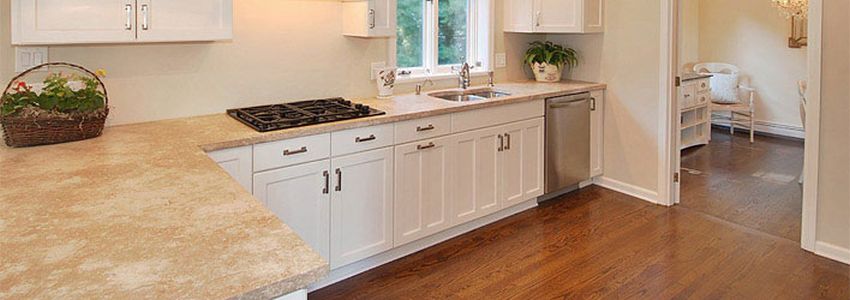
source:virginialimeworks.com
For more countertop options, visit here.
Now that you know the basics of granite, marble, slate, soapstone, and limestone, it’s time to weigh your options and make the best decision for your kitchen.
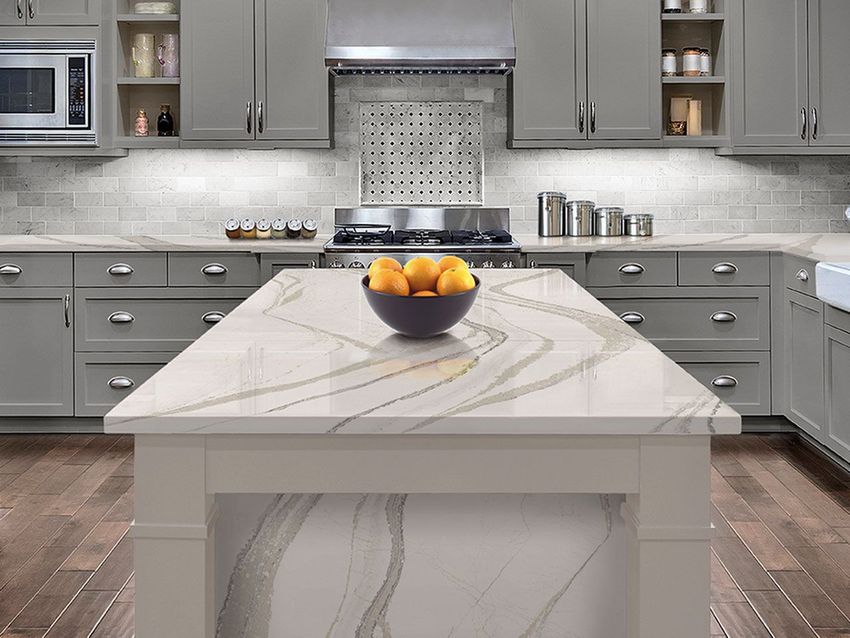
source:homedit.com
You asked yourself a few questions when you were reading the introduction to this article, and now we want you to ask yourself a few concluding questions to point yourself in a finalized direction.
– Are you willing to keep up with cleaning, maintaining, and resealing a countertop regularly? Or do you want a low-maintenance surface in your kitchen?
– What damage will your countertop be susceptible to? Will you be using it a lot for your cooking activities?
– Does a visual aesthetic matter to you? Would you want a unique-looking surface over a durable one?
– Do you know what material will better suit all your kitchen needs?
Once you’ve answered the questions to the best of your ability, head on down to the countertop shop that has the natural stone surfaces you’re looking for and have fun with the shopping experience!

